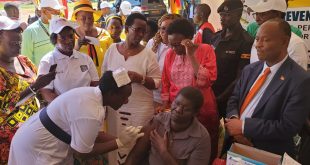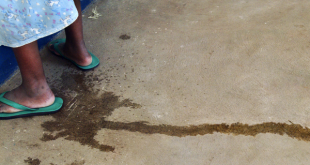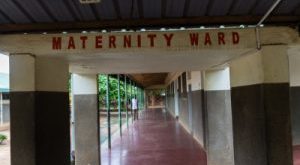
BY RICHARD DRASIMAKU
ARUA: FRIDAY, OCTOBER 14, 2022
Following years of intense community policing to promote sexual and reproductive health rights awareness, the men in Arua city have finally begun to open up on sexual and gender-based violence.
Jimmy Anguyo, the commandant of the child and family protection unit at the Arua central police station, said this year he has registered and handled eight cases of sexual and gender-based violence reported by men.
One of the men was Jabir, a resident of Arua Central Division whose relationship with the wife, Zawede, broke down after 13 years of marriage.
Jabir said for all these years they have been married, his wife who knew her HIV positive status was taking Antiretroviral drugs secretly as she kept him in the dark.
“I kept falling sick very frequently and I didn’t know what was happening to me. Then about three months ago I went to Arua Radiology Centre for general checkup. They found that I was HIV positive,” he narrated of the episode.
Jabir said only when he went home and informed his wife and told her to go and test for HIV, that Zawede told him she has been taking ARVs even before they got married.
“I realized that Zawede was a bad hearted woman and I chased her away from home and locked the door,” he said.
Then he recalled a message from a community policing meeting at former River Oli division headquarters when former community liaisons officer, Micah Avubieng, advised men facing gender-based violence at their homes to report cases to the police.
Jabir decided to report his wife to the police but he arrived when his wife had already rushed there.
Anguyo said after listening to both Jabir and Zawede, the police concluded that the man was the one who was abused by the wife and when he declared that he no longer wanted to see the woman at his home, the police advised them to part ways immediately.

Speaking to journalists during a training on sexual and reproductive health right, Anguyo said men opening up to report cases of gender-based violence meted on them by women was the biggest achievement registered in fighting an endemic vice.
The training focusing on gender sensitive reporting of sexual and reproductive health rights (SRHR) brought together 20 journalists, media personalities and social media influencers from Arua City and Terego district.
It was meant to enable them to play a key role in the implementation of the “We-Lead Project” that is being implemented by Mentoring and Empowerment Program for Young Women (MEMPRO) and the Sexual and Reproductive Health Rights Alliance in the districts of Arua and Terego.
MEMPRO is a national human rights and feminist organization that started operation in 2008.
The organization empowers adolescent girls and young women aged 14-29 years to expand their aspirations, strengthen their voices and exercise more choices.

Officials explained that the “We-Lead project” aims to strengthen the influence and position of young women’s sexual and reproductive health rights, especially in areas affected by displacement.
The commandant disclosed that of all types of sexual and gender-based violence, domestic violence is the leading crime in Uganda and the West Nile region (excluding refugees) comes second after the Busoga region when it comes to committal of domestic violence.
His records show that between January and August 2022, there were 135 cases of defilement registered at the Arua regional child and family protection unit. There were also 10 cases of rape, 298 cases of domestic violence, two cases of indecent assault and two deaths recorded as a result of domestic violence.
In comparison, in 2021, the unit recorded 216 cases of defilement, 186 cases of domestic violence, 12 rape cases and three cases of indecent assault. Majority of the cases were reported by women.
Anguyo however stressed that this was just a tip of a bigger problem because a lot of sexual and gender-based violence is taking place against men but they are not reporting it due to deep rooted cultural beliefs and fear of being laughed at.
“The vice is escalating especially violence against women and girls but there are also men who are suffering in the villages,” Anguyo said.
He attributed the many cases of SGBV to high rate of poverty, multiple partners, drug abuse and alcoholism, especially by women in trading centres like Pajulu, Buniababa and Mvara.
Anguyo argued that the fact that men have started opening up and are reporting sexual and gender-based violence committed against them by their spouses shows that community policing is reducing the phobia of male reluctance to report SGBV cases.
“We counsel the parties and let them go home to begin a new chapter. But if the behavior continues, we charge the offender and take them to court,” he said.
He was flanked by the senior Staff Officer, Gasper Obingu-onzi, who explained that community policing was a command driven program that is key in fighting SGBV.

He said community policing starts from the regional command level where they go out to sensitize, it trickles down to the police posts and involves the district security committee, religious and cultural institution to de-campaign crime.
But Obingu-onzi indicated that in the course of trying to reconcile the parties, the officers at the child and family unit might discover that a capital offence had been committed.
In such a circumstance, they refer the file to the criminal investigations department for investigation but that comes with loss of time.
To address this constrain, the police has appealed to the public to partner with them by sharing information timely while promising to protect whistle blowers of criminal activity.
Josephine Angucia, the police spokesperson for West Nile, said a lot of training is also going on for CID officers, community liaisons officers, general duty staff and crime intelligence officers to build their capacity to sensitize the people and investigate SGBV cases better.
The police officers emphasized to the journalists that fighting sexual and gender-based violence should not be a matter for the police alone but needs concerted effort from the community and other stakeholders including the media.
Following the interface, the journalists committed to partner with the police in the promotion of sexual and reproductive health rights and the fight against sexual and gender-based violence in West Nile.



